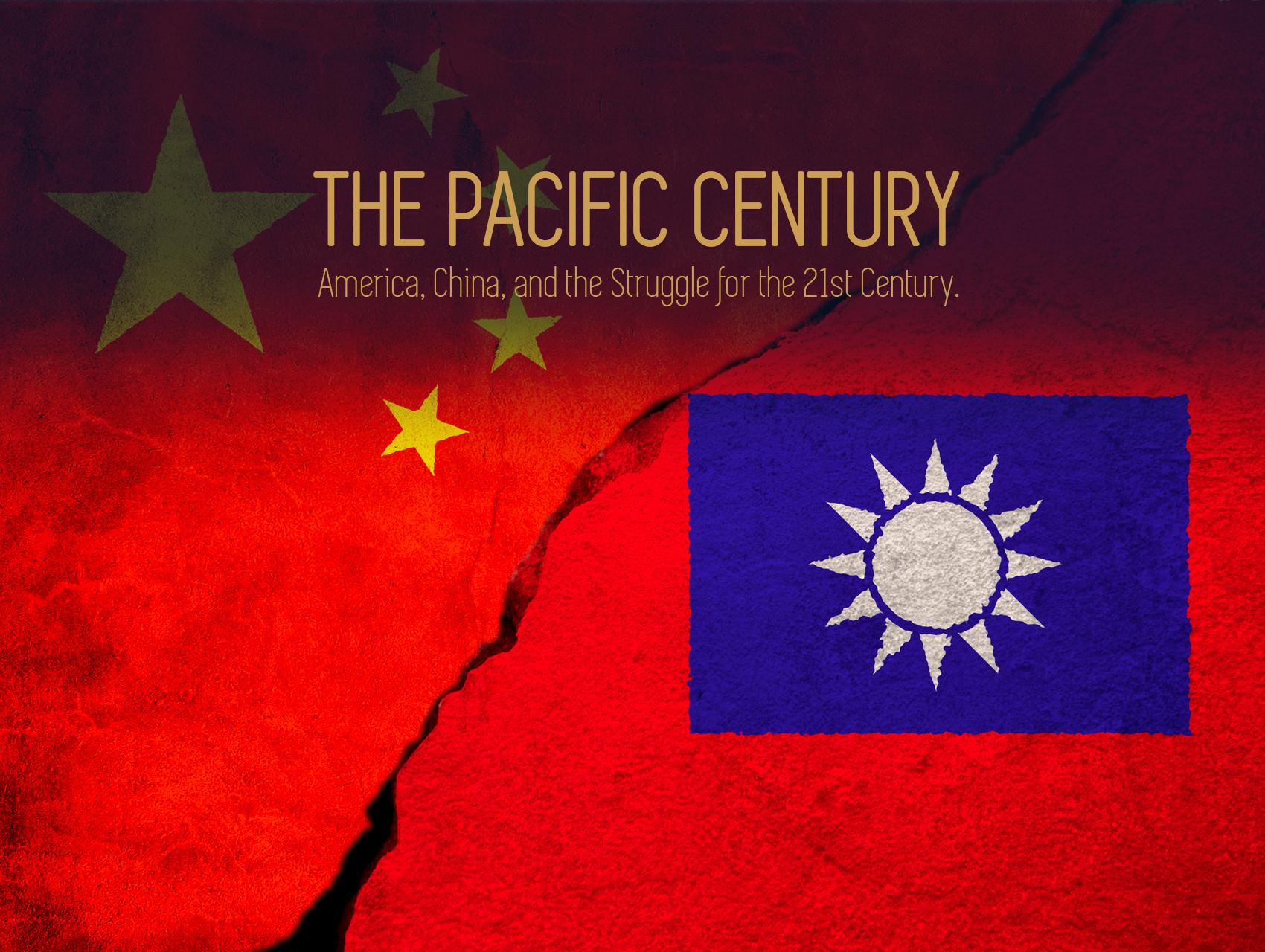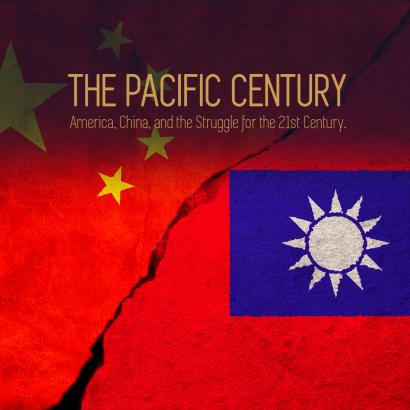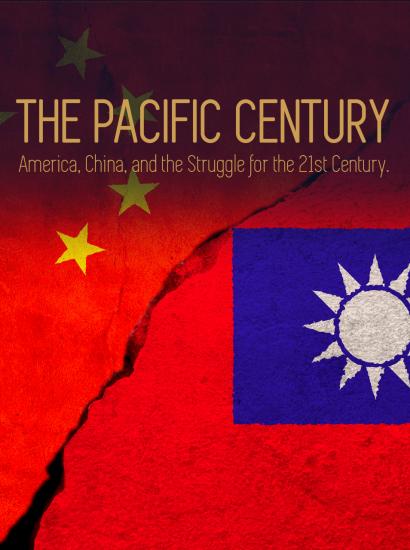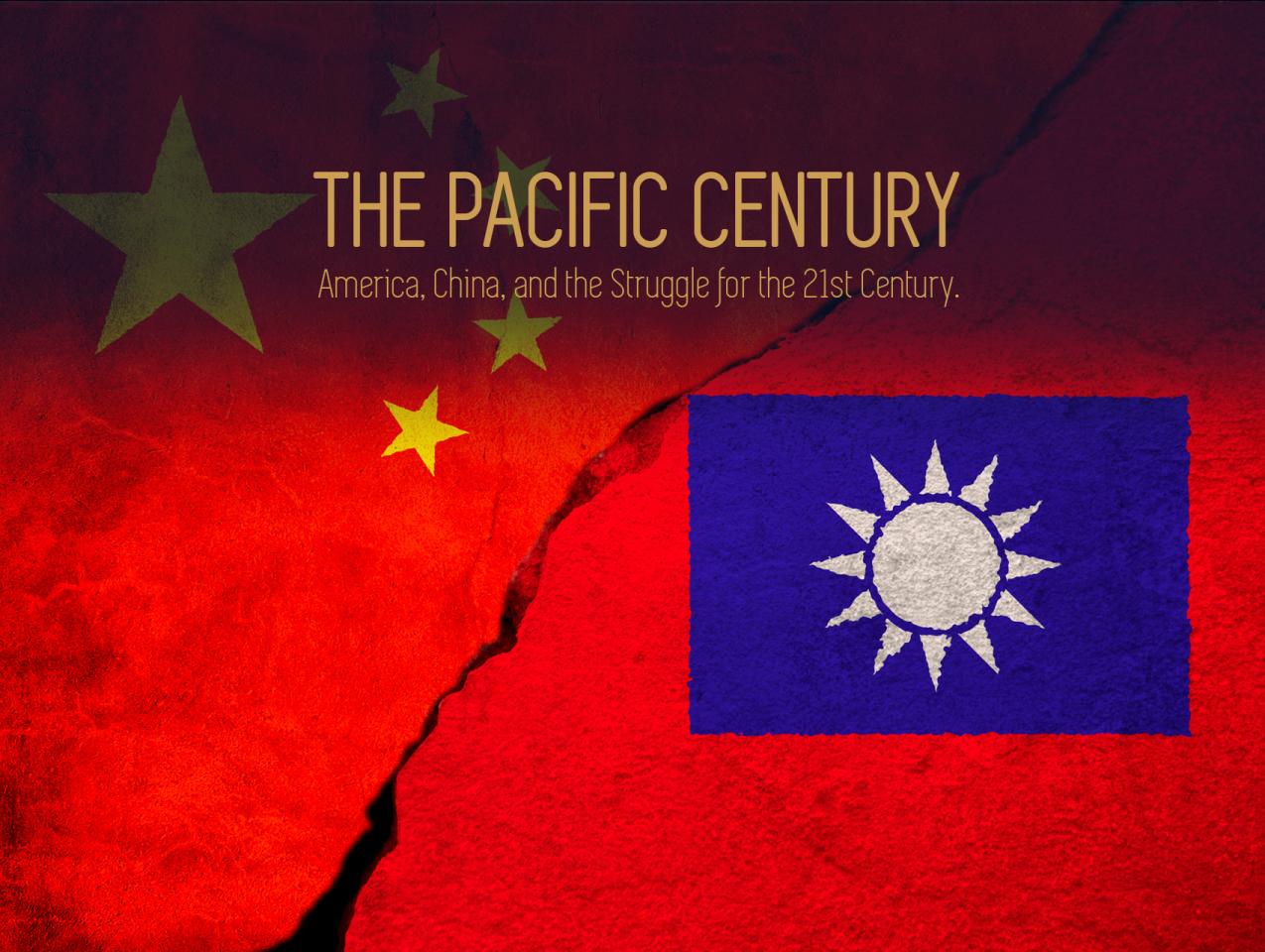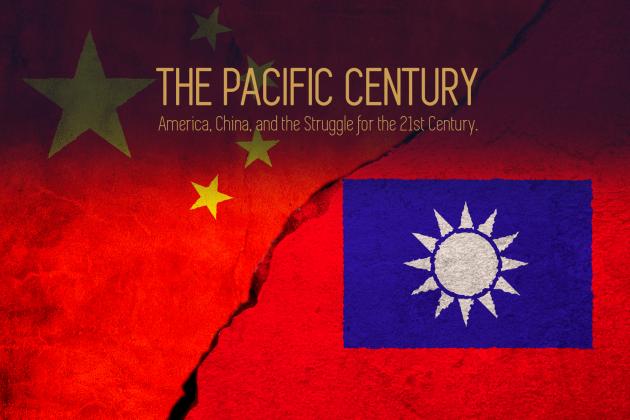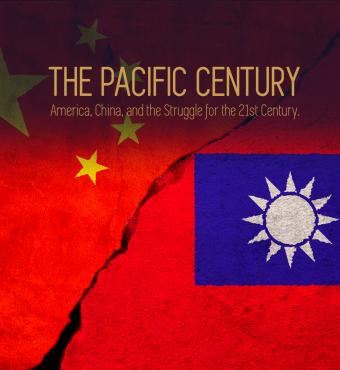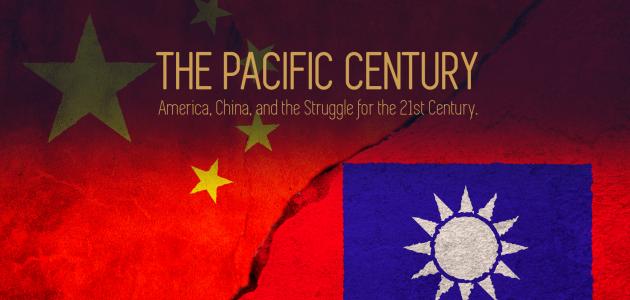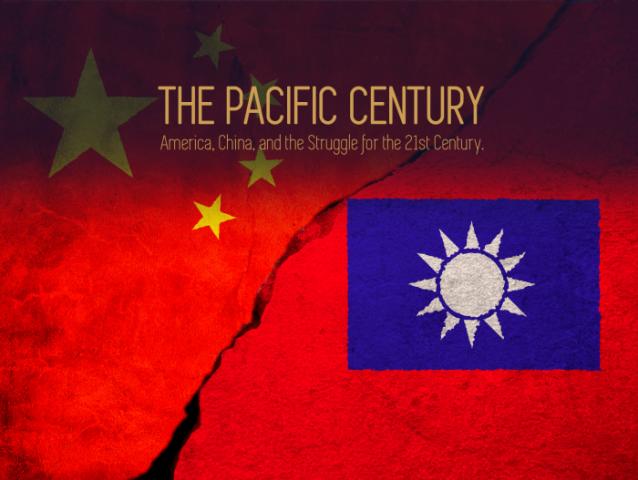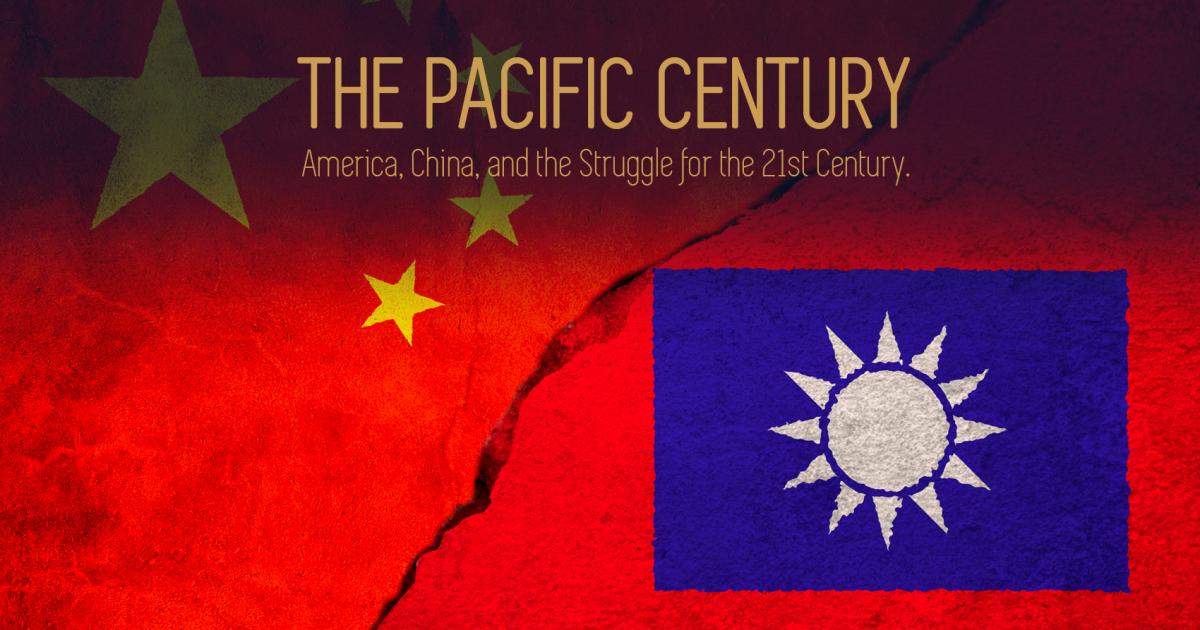A special mid-summer Pacific Century as Misha talks to the Financial Times’ Kathrin Hille about the Taiwan crisis, the “new normal” in cross-Strait tension, how China is trying to pressure Taiwan, and if Nancy Pelosi just made war more likely.
To view the full transcript, read below:
Misha Auslin: Welcome back to a special midsummer edition of the Pacific Century, a Hoover Institution podcast on China, America, Asia, and the fate of the 21st century. I'm your host, Misha Auslin, speaking to you from steamy Washington, DC, where most people are on vacation as are our friends in the universities. But that doesn't mean that the world has taken a break, let alone Asian. In fact, if anything, this has been a busier summer than usual. I am very happy today to be joined by one of the busiest people in Asia who has been recording and interpreting what's been going on, and that is Kathrin Hille, the Financial Times Greater China correspondent, who is currently based in Taipei. We are going to talk about everything you've been reading in the Financial Times and other media about Nancy Pelosi's trip to Taiwan, about the Chinese reaction, about what's going on between China and the United States and Europe and Greater China. So, Kathrin, thanks for joining me, and welcome to the Pacific Century.
Kathrin Hille: Thanks very much for having me, Misha.
Misha Auslin: So, actually, before we get into all the great headline stuff that you've been reporting on, I actually want to start with you. How long have you been out in Asia? I know that many of our listeners read you every day or whenever you're filing, which is multiple times a week, but they probably don't know who it is that they're reading. So have you been in China and Taipei long?
Kathrin Hille: This is actually my second posting here for the FT. The first time I reported for the Financial Times from Taipei was from 2003 to 2008. Then I moved to Beijing. From there, I moved to Moscow just in time for the first Ukraine crisis when they annexed Crimea. I spent five years there as the Moscow bureau chief, and I have been back in Taipei since 2018.
Misha Auslin: So, really, crisis follows you is what we're saying. You-
Kathrin Hille: Well, I wouldn't hope so. I really hope that stops here.
Misha Auslin: You may be the cause exactly. Every other country's saying, "Don't send Kathrin here. Something bad's going to happen." But that's great. In fact, you've been in the key places that have dominated Washington debate over geopolitics and the change in the international system for the past decade, which is Russia and China. Now, you've been at, really, what people call the epicenter. I think the Economist this week has the cover of Target: Taiwan, which, for those of us who've been doing Asia for so long, these are exactly the type of... How would we put it? It's not war-mongering and it's not hysterics, but it is a level of intensified concern that people often downplayed, that we said, "Look, things really aren't going to get that bad. Those who claim that things are, oh, like The End of the Asian Century are overstating things." But here we are where the common wisdom is that the US and China are on a collision course over Taiwan. So why don't we start with what you've been reporting on lately, which is, of course, the reaction to Nancy Pelosi's trip, as well as the trip that Senator Ed Markey took this week. You had a piece this morning in the paper talking about another set of military responses. A simple question. Is it really different now, or are we all just hyperventilating over nothing?
Kathrin Hille: It is really different now, but from my perspective here on the ground, it may be different now for reasons that are slightly different from those that may be reflected in some of the reports or some of the commentary we see every day. So what I observe is that I still believe that that talk of war and a full-blown Chinese invention of Taiwan may be an exaggeration, at least from where we are now. If you look at how the Chinese military treats the use of or the potential use of military force, they have a whole set of options, and their preferred option is not to be in a war, not to fight in a war, but to use the military power they have to deter others, to intimidate others, to maybe coerce others into, well, accepting the political goals they have or the Chinese leadership might have. I think what we're seeing now is basically an escalated version of that. We've seen China apply lots of different kinds of political pressure and economic pressure and some military intimidation tactics against Taiwan before. But this clearly is a new quality, and it really reminds me... The kinds of operations they've conducted around Taiwan over the past, what has it been, 10 days, two weeks resemble some of the things they've been doing around the region elsewhere as well. Not at this level of tension and it's not triggered that kind of fear of imminent hot conflict, but we've seen this before around the contested Senkaku Islands, which China calls it Diaoyu Islands, or around the South China Sea, China using the threat of military force and some limited military tactics to try and change the status quo, to increase their role in a conflict situation, and to underpin political claims they might have.
Misha Auslin: Are you surprised or were you surprised by the level of fury and violence? So you mentioned the Senkakus and also down in the South China Sea, where you're right, the pressure has been unrelenting in many... Of course, there's the island-building campaign, which changed the geopolitics of the South China Sea. The pressure against Japan's been unrelenting. Yet China wasn't launching missiles, didn't have live fire exercises, do the types of things that we saw. So, first, were you surprised at the intensity of the response?
Kathrin Hille: Well, I wasn't surprised when it happened because we have been hearing enough warnings, especially from the US military, ahead of time. So we were all bracing for some pretty bad stuff. Then, afterwards, or since the live fire exercises ended, there has also been a lot of analysis saying it's good that there's still some things they haven't done. If you look at the PLA's internal writings or the textbooks they have about what a deterrence campaign, this is what this is, or what a deterrence campaign looks like, it has other instruments in their arsenal as well. They could have theoretically... According to their own strategy or plans or options, they could have launched some what they see as warning strikes against territory. So there could have been actually some strikes on maybe outlying islands or even Taiwan proper as well.
Misha Auslin: These would've been maybe the small islands, like Matsu and Kinmen and-
Kathrin Hille: Well, those are the populated ones. Then you also have options at Pratas, which is one of the islands in the South China Sea where you only have Coast Guard and military that would've been a bit less escalatory. But then another option that was being discussed ahead of time in the run-up to this situation was whether PLA fighter aircraft might attempt to fly over Taiwan proper or right up into sovereign air space. They didn't do that either.
Misha Auslin: You mentioned that you see this, and it's been interpreted by some as a deterrence campaign. Exactly what are they trying to deter?
Kathrin Hille: Well, they've been talking about what they don't like a lot. On one side, of course, there's Taiwan, and on the other side, there's the US. This triangular relationship between Taiwan, China, and the US, the tension in this relationship has been rising for a long, long time because things have been changing on all three sides, right? So what they say they're trying to deter is Taiwan independence, and they're also trying to deter behavior from the US side which they describe as hollowing out the One China principle. They intensely dislike the current Taiwanese president, Tsai Ing-wen, who has refused to state that Taiwan is part of China. In more detail, she's refused to restate that Taiwan would accept the so-called '92 Consensus, which is a really convoluted thing which we maybe don't have to go into. But it was a formula used by the previous government that allowed the two sides to have some ambiguity and somehow make China feel better and convince them that there was still room for a future where Taiwan would be unified with China. So they want to discourage or further dissuade the current Taiwanese government from asserting its defacto independence and maybe moving further in that direction. They want to stop what they have watched the US do, which is expand engagement and contacts and dialogue and corporation with Taiwan.
Misha Auslin: And do you think they are going to be successful?
Kathrin Hille: That is one of the big questions going forward, and I think the most difficult thing or one of the very difficult things for the Taiwanese government in this situation before Nancy Pelosi's visit was to figure out whether they actually wanted her to come because that they were in a dilemma, especially after the visit or plans for the visit became public and were discussed at length. So one potential scenario would've been that the US would've backed down and not let her come. That would've created a precedent under which China successfully coerced the US or a third country, in any case, into acquiescing to isolating Taiwan. But the alternative was risking what we have now, heightened military tension. So Taiwan was in a very, very difficult position ahead of time. But I think on balance the Taiwanese government thought that it was vital for Taiwan security in the longer term that they continue to have friends and partners abroad stand with them and engage with them to not have this status quo of an independent or defacto independent Taiwan hollow out.
Misha Auslin: So others have also interpreted what's happened over the past two weeks as essentially China blockading Taiwan, that they have made the airspace dangerous for civilian flights to go into, certainly when they were firing off missiles, some of which landed in Japan's EEZ, that they were flooding the waters around Taiwan. So not only were they showing that they could do it. Some interpreted is as that they were actually doing it. What do you make of that interpretation?
Kathrin Hille: Yeah. I would disagree with that because if you look at what a real full military blockade actually means is you have to disrupt if not fully stop external links and traffic, sea and air, and none of that happened. I mean, the only flights that were canceled... I think there were a few Korean airlines canceled some flights for a couple of days during the live fire exercises. Other flights were diverted around the closure zones, but they all continued, and I think sea cargo traffic was not disrupted at all. Of course, the fear was that if this situation continued or maybe if China had announced another and another and another of those live fire exercises with closure zones, it would certainly have caused deep worries about the possibility of a full blockade, and it would've had an economic effect because then, especially in sea traffic, you would've seen fuel costs go up if you have to go around those zones and insurance costs go up because there the risks increase. But a full blockade requires actually more than just announcing six zones around the island with big sea and air spaces between them, and we're not there yet. I think it's a fair point to say this was a rehearsal. The PLA has been very good, not just in this recent period but for years now, extracting multiple benefits from its military operations around Taiwan because they've been flying around Taiwan's air defense identification zone on a very regular basis for a long time now. This meets several targets at once for them because they can practice, they've been flying multiple kinds of aircraft through those areas, they've practiced different kinds of operations. At the same time, obviously, it's a great kind of gray zone warfare because you intimidate your adversary. You also impose a cost on them because Taiwan has to scramble those fighters all the time to make sure that they have enough warning time and they basically call them to turn around and leave. They signal to everyone else as well that we're around here and we could even do more than that. So it's no different in this situation that they had a great round of exercises in the actual theater where a blockade or an invasion or whatever else would take place, which they haven't done before, joint operations with all kinds of different aircraft and ships together at the same time and maybe also some electronic warfare, certainly cyber operations, all the rest of it. So they did practice, but they also, of course, achieved at least some effect in psychological warfare and deterrence.
Misha Auslin: So from their perspective then, either your own assessment or what you may be hearing from your sources in Taiwan as well as allied militaries in the region, did we learn anything from what the Chinese did, meaning did they pull back the curtain more than they have in the past on showing their capabilities, how they're going to inter-operate, as you mentioned, joint force, a whole range of response that maybe we haven't seen, or was this just run of the mill, it was just more than usual, or do we have a better sense of what they might do?
Kathrin Hille: Well, I mean, there has been some reporting about how this is a great spying opportunity for the US and some of their allies. I don't have any insight on what they might have gleaned. I've talked to a lot of people who do this military analysis for a living or are in the military themselves, and my initial idea was also that, oh, this has to tell us a lot about whether the recent PLA reforms were successful, how far they've come in pulling off joint operations. What can we see from how they would organize their command and control and whether maybe their dual structure, because this is a party army, right, so their dual structure of military commanders and political officers somehow hinders operations? I think it's a bit of a disappointment in that regard because they exercise a lot in this season anyways and we have the opportunity or we have the chance normally to read in the Chinese military media and the official media quite detailed reports on their regular exercises. The way they write about those exercises, although there's a lot of party speak in there and it's very tiring to read that, but, still, there are recurring phrases, and you can tell when the military thinks that there still is a problem or maybe they've made some major breakthroughs. So you can probably learn more from those regular exercises than you could from this one. Also, there was one argument that it may be very impressive that they could ramp up this several days long joint operation over such a large territory that quickly. But I would caution that maybe they didn't ramp it up that quickly after all because they've actually known that Pelosi's visit would take place. They've known it for quite a while. The first time I think those plans for the visit became public was in April. So, if you will, they got strategic warning several months ahead, so they would've maybe made plans for that. We've heard from both the US government and also the Taiwanese government that they believe that this was not a furious response or reaction off the cuff to this visit but rather that China may have taken the visit as a pretext to pull something off they might have planned anyway but didn't really have the opportunity for. I've had people explain to me here in Taiwan that they think the Chinese would probably really like to test some of those missiles in exactly the way they did, traversing the skies over Taiwan, but in normal times that would've been clearly deemed unacceptable elsewhere. I mean, there's a reason that this has been compared to North Korea because only North Korea would do such a thing previously, but now China's joined the club. But the reaction to that part of the exercise was actually a lot milder than the international reaction to the North Korean missile test in 2017 that did the same thing over Japan. So, in that sense, the Chinese calculus, if it was that, might actually have worked out.
Misha Auslin: So this morning you reported on a new set of exercises, again, not the live fire exercises, and China, I think, actually announced in intermediate or a set in between after Pelosi and the new one. The point is that it seems to be becoming more regularized, and some are calling this the new normal, that there will be constant activities, constant exercising. You mentioned China exercises a lot this time of year, but are we in a new normal? What does that even mean?
Kathrin Hille: Yeah, we certainly are. I think so. The first phase of what we saw after Pelosi's visit was four days, well, four calendar days of what had been announced as exercises, and those four calendar days was the duration of the closure of those pieces of airspace and waters. You do that to warn ships and planes out of those areas because you're going to conduct live fire exercises. But as far as we know, live fire exercises of artillery and missiles were only actually conducted on day one or day two, I don't recall exactly. So the expectation was, psychologically, in Taiwan and elsewhere, that after day four this would be over, and then maybe the big question was will they announce another set after that or what will happen? But then after the closure zones expired, the PLA said, "Surprise, surprise, we're still exercising." They didn't fire missiles, but they continued to fly fighter aircraft and sail ships and so on. They had all these announcements two or three times a day with video and photos out of the Eastern Theater Command, allegedly showing what their forces were doing that day and also describing what the task was that day, so saying, "Today we're practicing the assault on Taiwan proper, and today we're doing anti-submarine warfare," whatever. Then last week on Wednesday, I think, the PLA finally said, "Okay, the exercises have been completed, but we will keep close eye and continue to conduct patrols." Of course, that had been accompanied by a barrage of commentary and propaganda on state media with military analysts in China saying, "One of the big things we've achieved is really getting rid of that Taiwan Strait median line for good," which is... That used to be an unofficial buffer between the two sides set by the US in the 1950s. It by and large had been respected until a couple of years ago by both sides. But China have been softening it up with incursions, again, since 2020. So they were signaling already that, "We went there during the exercise and we will just stay. We'll stay closer to you from now on."
Misha Auslin: How significant, by the way, is that? You've written that they've said, "We've effaced this line. The line has been erased and no longer exists." This is a line that goes down the Taiwan Strait, essentially down the middle, and it separated, as you said, the two sides. It was considered a border, so to speak, and a buffer between the two. How significant is it in your view if it is indeed now erased by China?
Kathrin Hille: Well, I mean, initially or originally, the line was meant to give both sides some kind of protection and early warning because the Strait is not that broad. Especially nowadays, if you fly a fighter jet over there, you'll be in Taiwan in a matter of minutes. So if there is something between the two, kind of a buffer, and you have this tacit agreement that you won't go there, that obviously lowers the risk a little bit. In that sense, it used to be very meaningful. But I think the bigger significance right now is that the PLA can just step by step, little by little, expand the area where it conducts regular operations and through that underpin its claim that, "This is ours to begin with, and anyone who says otherwise is just wrong. The status quo is not what you say it is. We're showing you what the status quo is. The status quo is that we are operating around here and we're getting really close." So I think that's the main significance. If you look at what happened since the PLA or after the PLA said last week that the exercises have been completed, they didn't stop. They continued flying across the median line with an average of, I think, 24 or 25 war planes a day between last Wednesday and last Sunday. Then, on Monday, after the second US congressional delegation arrived, they said, "Okay, this is too much, you need to be punished. We're starting another round of exercises." But there's actually no sign that what they called an exercise on Monday was any different from what they had been doing between Wednesday and Sunday, the four days before. So what we have now is a constant presence, and the only interesting thing is whether the number of assets involved, like aircraft and ships, will gradually drop over time as we get into autumn and the weather gets a bit rougher in the Taiwan Strait and then during winter.
Misha Auslin: So summing up then everything that you've been talking about, and it's been incredibly clear exposition of what's going on and what's changed, how do we assess it? Was Pelosi's trip reckless? Did Pelosi's trip cause this? Were the Chinese not going to do this before she came, or was this the perfect opportunity to take significant strategic and security steps that they wanted to but didn't have an excuse for? Looking back a little bit as an historian, if you can, although we're in the midst of it, how would you assess how important the trip itself was, and was it really a colossal blunder that may have now put us into a new era?
Kathrin Hille: I would not say that the trip caused this because I still think that we need to keep in mind who is making the military threat here. You put it quite aptly. You said this was a perfect opportunity to, I don't know what exactly you said, but for China, really, to take strategic gains. Clearly, they've said many times what their goal is. They want unification. They want Taiwan under their control. Also, the terms which they are offering are worsening from Taiwan's perspective over time as their language gets tougher and the mix of carrots and sticks, if you will, is shifting more and more to the stick side. So that's all clear. They've said that many times. I think Pelosi's visit offered an opportunity for them to do this. But then again, would you rather have had the alternative? I don't know. I mean, I was among those who believed before the final decision had been announced that she was actually coming. I was among those who said, yes, I think at this point she has to come. Otherwise, China gets to decide whether other countries can engage with Taiwan, and that would only enable them more to step up coercion. But, of course, that said, Pelosi's personal motives for planning and making this visit, I'm not privy to those, but may be questionable because it is of course... You have to question who takes responsibility for what. Just coming here and taking the stage and saying in Taipei, "China does not get to decide the travel schedule of members of Congress," well, she's right, of course, but the ones paying the price are others, right? So, as I said, I'm not privy to her considerations. I was also not privy to the discussions Taiwanese officials or diplomats may or may not have had with her team and if there maybe were some notes of caution expressed from the Taiwanese side at some point. But I think, at the end of the day, the aggressor is not the US and is not Taiwan. It's China.
Misha Auslin: Well, let's talk about the Taiwanese side for just a second. You said they pay the price, which obviously they do. If anything, what are you hearing from people in the government about now their assessment? Do they feel they're in a worse situation, or do they feel they're in a good spot because you had Pelosi come, you've had Markey come, you certainly didn't have... I mean, President Biden publicly, in essence, tried to deter Pelosi from going, but after the trip the government, of course, supported it. So what are you hearing from the Taiwanese themselves? Are they more worried, or are they more confident?
Kathrin Hille: I don't think they're more confident. I mean, if you look at President Tsai Ing-wen, I think her central concept or one of the key goals or lenses through which she views Taiwan's whole security situation is keeping what Taiwan has, preserving, really, and safeguarding what they have, their democracy, their way of life, their security, their sheer survival. Let's not forget that Tsai Ing-wen has been at this for quite a while. She was among those scholars who gave some input to the government of Lee Teng-hui in the 1990s on how to strengthen the basis for the sovereignty of the Republic of China on Taiwan because this followed this episode where Bill Clinton expressed or pledged the three nos to not supporting Taiwan independence, not supporting Taiwan participation in the UN, and I forget. The third escapes me now, but basically assurances to China that weakened Taiwan's chances to participate in the international community. The Taiwanese at the time felt that they had to push back against this, not to make progress towards independence, but just to basically preserve the level of independence and participation internationally they had. I think Tsai has been at that ever since, and this is the mainstay of what they're trying to do. In that context, you can maybe understand how important international visitors are for them. Let's also not forget that members of Congress visiting Taiwan has been absolutely common for many years. It's not something new. So the only point here, I think, for them was really pushing back against this being eroded and preserving this kind of contact with the outside world.
Misha Auslin: Yeah. The Clinton three nos you mentioned, the first is, "We don't support independence for Taiwan," that's Clinton's words, or supporting One Taiwan, One China-
Kathrin Hille: Oh, right. That-
Misha Auslin: ... as a formulation, and then, of course, as you said, shouldn't be a member of any organization for which statehood is a requirement. So, as you said, that really cuts it out from much of the international community. Let's jump across the Strait then and just talk a bit about China. How do you see it, and what are you hearing, if anything, about how China, when we say China, of course, we're talking about Xi Jinping, we're talking about the central leadership, sees this? Are they more confident, or are they frustrated because they couldn't deter either Pelosi or Markey from coming as well as the rhetoric of the US government once the trips had gone on, or do they think this is perfect because, as we were mentioning a few minutes ago, this is something that they've wanted to do in terms of expanding their strategic space and therefore they are now in a better position on, let's say, the hard power side of things, if not necessarily a better position on the soft power side of things?
Kathrin Hille: Right. Yeah. This is obviously the difficult question because none of us can get into Xi Jinping's head and even outside his head. Visibility is very limited as to what the Communist Party leadership wants or plans. Maybe it's better for all of us if China is confident because that wouldn't mean that they have to resort to even more extreme means to reach their goals. But, of course, for China, I've talked a lot about how China is the aggressor, but to be fair, on balance, of course, for China, the situation is also really, really difficult because they have not been the only ones changing the status quo. To start with Taiwan, things have changed enormously in Taiwan over the past few decades, ever since Taiwan became a democracy in the early 1990s. It has become very, very clear that a large majority of the population does not want to become part of China, and that picture has become even more pronounced. In the course of those years since then, China has tried many different things to convince the Taiwanese or to make unification palatable to them. They offered this one country, two systems model, which it has often been said that Hong Kong killed that for the Taiwanese, but, actually, it was a non-starter from the beginning. The Hong Kong situation has made it just even more clear to the Taiwanese that they can't possibly want this. So Taiwanese public opinion became much clearer and also much more pronounced. So China tried economic integration. They opened economically, and Taiwanese people and money have played a huge role in making China the factory of the world and an export superpower and all the rest of it. So the economies became closely integrated, but public opinion in Taiwan moved in the other direction anyway, and so that didn't work. China tried many other things as well, a mixture of trying to address individual groups of the population in Taiwan and then maybe trying to engage the opposition party and trying to foster anti-government groups in Taiwan trying social disruption, and none of it has been really successful. Of course, everyone in Taiwan dreads the day when the Chinese Communist Party finally comes to the conclusion, "Okay, peaceful doesn't work. Let's try war." But even that is, of course, not really an accurate description because there is a very broad range of things that the Chinese Communist Party can do between peace and war, and I think that's where we are now. That's what they've demonstrated over the past couple of weeks. So I think they must be satisfied with what they've achieved because they have changed. They've established a new normal, which puts them at an advantage, and they will have time to try that out now for a while. I think the name of the game is intimidation. Okay, they didn't manage to create panic during a few days of military exercises, but they can try other things. They can try if they can wear people in Taiwan down and undermine morale if they keep this up for months on end and maybe raise the heat a little over time. That is possible. If that doesn't work, they could maybe add some more economic coercion, too. It remains to be seen whether their deterrence element works in terms of third countries. So the US didn't back down and they actually conducted this second congressional delegation that was obviously planned earlier. They didn't shy away from that. But what about other countries? What about more Japanese parliamentarians visiting in the months ahead? What about Europeans? There's a number of European lawmakers' visits planned, and we don't know if those will go ahead. So we'll probably only know in a few months' time.
Misha Auslin: And what about the argument that Pelosi's visit was particularly provocative because the 20th Party Congress is coming up this fall. It's Xi Jinping's supposed moment to secure a third term as party head and, of course, leading the country, and so this was seen as a direct affront in a way to him and his control over China's greater destiny. Do you think that played into any of it at all, or given how things have played out, if he needed to be, does this strengthen him going into the Party Congress? Does it weaken him, or is it a wash?
Kathrin Hille: I don't think it weakens him now. I'm still a little bit unsure about the overall public verdict in China because public opinion in China, that's a very strange beast. You never know how much of what you see in polls or in social media and among so-called opinion leaders... It's very hard to tell what is real and what is just manufactured. But there was certainly a wave of expressions of discontent, disappointment, even anger when it turned out that the Chinese military was not going to shoot down Pelosi's plane because that was one of the scenarios that had been discussed by some nationalist commentators ahead of time. So I'm not sure whether this is a success of Xi Jinping in the public's eyes, but then the public doesn't really matter. It's not even the party cutters. It's really the party leaders who matter. I would think that he's played his hand well and he can consider himself strengthened for now.
Misha Auslin: So I know it's late there and you've told me you've already had almost a 20-hour day or something crazy like that because of the time differences and taking up all the slack. Let me ask you a final question. On the assumption that we don't have a war, that Taiwan doesn't get invaded, doesn't get obliterated, and that one great way to support Taiwan is to increase the number of Americans and others visiting Taiwan... You've been there. This is your second time there. What are the three things that a visitor to Taiwan absolutely must do or see, and in the spirit of my old friend, John Yoo, who always used to ask this question, tell us your favorite restaurant in Taipei or anywhere in Taiwan as well. So what do people need to see and do in Taiwan and where do they need to eat?
Kathrin Hille: Wow. Okay. So eating... I mean, night markets are not really that fashionable anymore, but I still like them, and I particularly like one food stall on the night market in Jilong, in the northern port city, that sells... Oh, God, how do you translate that into English? It's a kind of noodles made out of a sort of beans. So it's glass noodle with lots of bits of seafood and soup in it and lots of coriander on top. I just love that.
Misha Auslin: Sounds great.
Kathrin Hille: Yeah. So that's outside the main temple in Jilong, and that's really worth going for. What to do and what to see? Now, that's a difficult one, depends on how much time you've got on your hands. But I think, if you can, you should try to not only stay in Taipei but maybe go for a mountain hike. Well, you need a lot of time for the really high mountains because you need permits for many of them. But there's some places closer by. In summertime, for example, you can hike on the grasslands on the northeast coast. You get magnificent views. What else? In Taipei, what I particularly like is the old town in the west of the city, which had almost collapsed when I was a student and first came to Taiwan in 1991 but has now actually been revived and many of the houses have been renovated very nicely with restaurants and workshops in them. So that's a wonderful afternoon stroll down those old lanes and having some nice coffee and maybe buying some nice fabric or a teapot or whatever. So, yeah, that's probably a good mix.
Misha Auslin: I would also, of course, add the National Palace Museum for anyone-
Kathrin Hille: Yes. Yeah. Yes, of course. Well, and so many other things.
Misha Auslin: For anyone visiting, yeah. Well, that's great. Well, I think you'll have spurred some adventurous travelers hopefully to get over there and see what is a beautiful country and a fascinating society. But even though it's getting close to midnight your time, just, again, your explanation of everything that's been going on and what it really means is absolutely clear, and we appreciate you taking time to join us. Obviously, again, Kathrin Hille, who is the Greater China correspondent for the Financial Times, if you're not reading her... You probably are, but if you're not, you should be. We really appreciate your explaining to us behind the scenes what's happening.
Kathrin Hille: Thanks so much, Misha, for having me. It was a real pleasure.
Misha Auslin: Well, for the Pacific Century, I'm Misha Auslin, and assuming that we don't have any outbreak of war in Asia, we'll be back in a few weeks, and we look forward to you joining us then. Bye-bye.
Announcer: This podcast is a production of the Hoover Institution, where we advance ideas that define a free society and improve the human condition. For more information about our work or to listen to more of our podcasts or watch our videos, please visit hoover.org.







